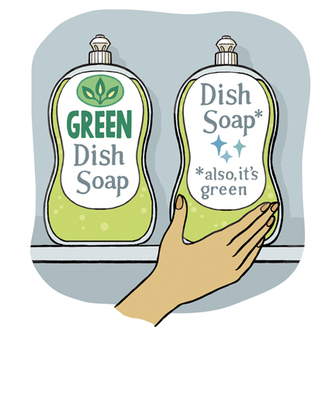 loading
loading
FindingsThe accidental environmentalistA green product is assumed to be an inferior product.  Gregory NemecView full imageLike kids eyeing their vegetables, people tend to think that if something is good for them, they won’t like it. Ditto when it’s good for the planet: a green product is assumed to be an inferior product. Unless it’s green by accident. “It would seem that intending to make a product better should be preferred to unintentionally doing so,” School of Management researchers write in the Journal of Consumer Research. “However,… consumers are less likely to purchase if the green benefit is perceived as intended than when the same benefit is perceived as an unintended side effect.” George Newman, first author of the study, says it’s assumed that “if companies are making something better in one way, they’re taking it away from another dimension.” Newman, an assistant professor of organizational behavior, and coauthors Margarita Gorlin ’09, ’15PhD, and Ravi Dhar, professor of marketing, asked volunteers about two products—a dish soap and a drain cleaner—described as “significantly better for the environment.” Some people were told the company made the product green on purpose; others were told it was a side effect. The first group rated the products less effective and was more likely to agree that “the company took resources away from making this product better.” Still, Newman advises honesty in marketing: “There’s a great opportunity here to communicate what makes it green.”
The comment period has expired.
|
|